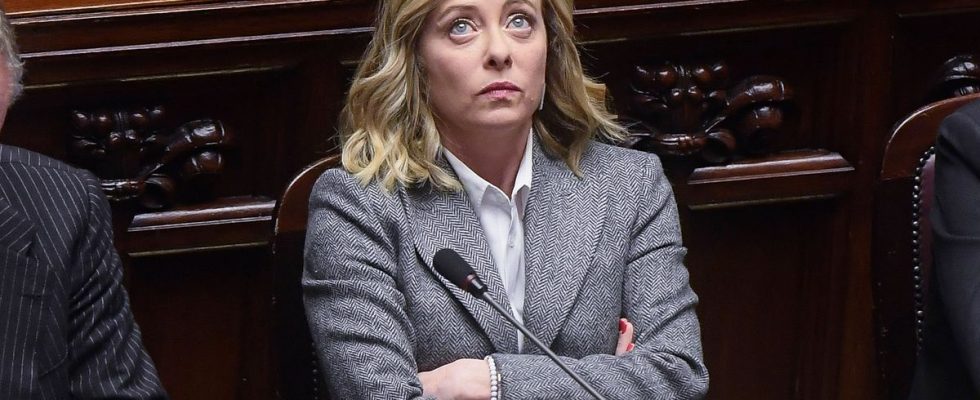“No to the privatization of Poste Italiane, it’s a jewel that must remain in the hands of the Italians,” railed Giorgia Meloni in 2018 on Facebook. Now Prime Minister of Italy, she is nevertheless preparing to sell shares to international investors Objective of the ultraconservative government: to raise 20 billion euros by 2026 thanks to privatizations in order to curb the explosion of public debt which displays the highest ratio in the euro zone after Greece.
In addition to the Post Office, which is very profitable thanks to its insurance and banking activities, the State intends to sell part of its shares in the railway company Ferrovie dello Stato and in the hydrocarbon giant Eni. But there is no question for Ms. Meloni of selling off public assets: “our approach will be light years away from what we saw in the past, when privatizations meant gifts to lucky entrepreneurs. »
And above all, the State intends to keep its hands on its jewels: “we can sell certain shares in public companies without compromising public control,” assured the head of the post-fascist Fratelli d’Italia party. If initially the government planned to keep a majority of 51% in the Post Office, Finance Minister Giancarlo Giorgetti mentioned on Friday a minimum threshold of 35%.
The Public Treasury holds a 29.26% share in Poste Italiane to which is added 35% of the Italian Caisse des Dépôts (CDP). If he sold his entire share, he would collect 3.9 billion euros, or almost a fifth of the 20 billion targeted.
In the name of the homeland
This partial privatization mega-plan was strongly criticized by the opposition. The government “always claims to belong to the homeland and today it is starting to sell the homeland. We believe that the homeland cannot be sold,” said Andrea Orlando, deputy of the Democratic Party (center left), on Sunday. Giorgia Meloni nevertheless intends to “strengthen the presence of the State where it is necessary”, as in the case of the ex-Ilva steelworks, on the verge of financial asphyxiation.
The start of privatizations was given in November, with the placement on the markets of 25% of the capital of Monte dei Paschi di Siena, of which the State previously held 64%, for 920 million euros. Rome, which must withdraw from the bank’s capital in order to comply with European Commission regulations on state aid, sold a share to investors, failing to find a buyer.
Another privatization in progress due to demands from Brussels, the entry of Lufthansa into the capital of the public company ITA Airways, born from the ashes of Alitalia, is however blocked for the moment, due to fears for competition. International investors are “all very interested” in the Italian state’s participations, Giancarlo Giorgetti assured Wednesday.
“Drop of water in the ocean”
Thanks to the expected revenues, Rome intends to reduce the public debt ratio from 140.2% to 139.6% of GDP in 2026, instead of 140.6% in the absence of this measure. Is this enough to reverse the trajectory of a colossal debt which reaches more than 2,800 billion euros? “It’s just a drop in the ocean, these privatizations do not reduce the risk of seeing the debt increase. It is not a structural remedy,” Nicola Nobile of Oxford Economics commented to AFP.
And above all, the State intends to keep its hands on its jewels: “we can sell certain shares in public companies without compromising public control,” assured the head of the post-fascist Fratelli d’Italia party. If initially the government planned to keep a majority of 51% in the Post Office, Finance Minister Giancarlo Giorgetti mentioned on Friday a minimum threshold of 35%. ines of millions of euros per year in the case of the Post Office.
“These semi-public companies like Eni are well managed and pay good dividends that the government gives up in exchange for a lump sum,” Lorenzo Codogno, former chief economist of the Italian Treasury, explains to AFP. And according to him, there is nothing to indicate that the amount of 20 billion will be collected: “it is a very ambitious objective which will be difficult to achieve”.

